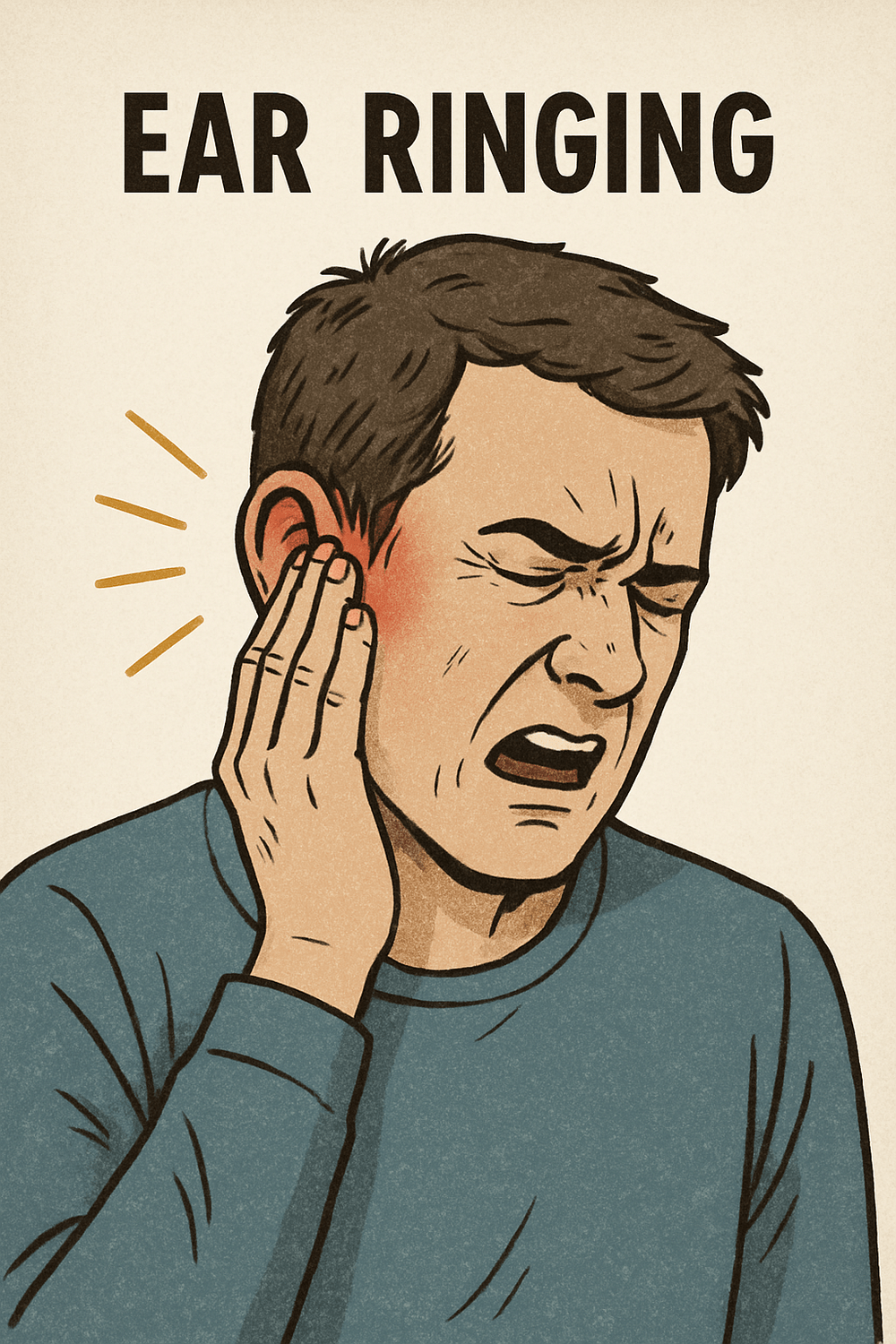Product Guide
10 Ways To Avoid Ear Ringing Burnout
Tinnitus, often described as a persistent ringing, buzzing, or hissing in the ears, affects millions of people worldwide. For some, it’s a mild annoyance. For others, it’s a constant source of distress that can lead to emotional exhaustion and what’s known as ear ringing burnout. This form of burnout refers to the mental fatigue and frustration caused by the unrelenting presence of tinnitus, which can severely impact one's quality of life.
Here are 10 effective ways to avoid ear ringing burnout, helping you manage the condition without feeling overwhelmed:
1. Understand the Source of Your Tinnitus
The first step in managing tinnitus is understanding what causes it. Tinnitus can result from various factors including:
Exposure to loud noises
Earwax blockages
Age-related hearing loss
High blood pressure
Side effects of medications
Consulting an audiologist or ENT specialist can help pinpoint the source, which is essential for targeted treatment and mental peace. Knowing that your tinnitus isn’t a mystery gives you a sense of control — a crucial buffer against burnout.

2. Protect Your Ears from Loud Noises
Exposure to loud sounds is one of the leading causes of tinnitus — and can make existing symptoms worse. To protect your ears:
Use earplugs in noisy environments (concerts, construction sites, traffic)
Keep your volume below 60% when using headphones
Take breaks from constant audio input
Preventing further damage reduces stress and the feeling of helplessness that can lead to burnout.
3. Practice Sound Therapy
Silence can actually make tinnitus feel louder. Sound therapy involves using background noise to mask or distract from the ringing. You can try:
White noise machines
Ocean wave or forest sound apps
Low-volume music or ambient sounds
Over time, the brain can “tune out” the tinnitus, reducing its perceived intensity and your emotional reaction to it.
4. Establish a Sleep Routine
Tinnitus often becomes more noticeable at night, making sleep a challenge. Sleep deprivation can exacerbate burnout, so it’s crucial to:
Maintain a consistent sleep schedule
Use sleep sounds or a white noise machine
Avoid caffeine or screen time before bed
Quality sleep improves your brain’s ability to cope with tinnitus and lowers emotional fatigue.
5. Limit Stress Through Relaxation Techniques
Stress is both a trigger and amplifier of tinnitus. When you’re stressed, the brain becomes more sensitive to the ringing, making it seem louder and more intrusive.
To break the cycle:
Practice deep breathing
Try progressive muscle relaxation
Use guided meditations
Learn mindfulness or yoga
Even 10–15 minutes a day can reduce your mental load and help prevent emotional burnout.
6. Stay Physically Active
Exercise isn’t just good for your body — it’s a powerful tool for managing tinnitus. Physical activity:
Improves blood circulation (important for inner ear health)
Releases endorphins (which elevate mood)
Helps reduce stress and anxiety
Aim for moderate exercise like walking, swimming, or cycling at least 4–5 times per week.
7. Connect with a Support Network
Living with chronic tinnitus can be isolating, especially if others don’t understand what you’re experiencing. Avoid this emotional trap by:
Joining a tinnitus support group (in-person or online)
Talking openly with family and friends
Consulting a mental health professional when needed
Sharing your journey with others reduces the emotional burden and reinforces the message that you’re not alone.
8. Limit Caffeine, Alcohol, and Smoking
Certain substances can trigger or worsen tinnitus symptoms. These include:
Caffeine (stimulates your central nervous system)
Alcohol (affects blood flow to the ears)
Nicotine (constricts blood vessels and damages auditory nerves)
Reducing or eliminating these substances can lower the intensity of your tinnitus and prevent it from hijacking your mental health.
9. Practice Cognitive Behavioral Therapy (CBT)
CBT is a proven psychological approach that helps individuals reframe their thoughts and reactions to chronic conditions — including tinnitus. It focuses on:
Changing negative thought patterns
Reducing anxiety and fear around tinnitus
Creating coping strategies for daily management
Working with a CBT-trained therapist can significantly reduce your emotional response to tinnitus and help prevent burnout.

10. Set Realistic Expectations
There is no universal cure for tinnitus, but effective management is possible. Many people fall into burnout because they chase a “complete silence” goal and get discouraged when it doesn’t happen.
Instead:
Focus on reducing emotional distress
Aim to coexist peacefully with the sound
Celebrate small improvements (better sleep, fewer flare-ups)
Adopting a mindset of acceptance can reduce frustration and increase resilience.
Conclusion
Tinnitus may be a constant presence, but ear ringing burnout doesn’t have to be. With the right lifestyle adjustments, emotional tools, and professional guidance, you can manage your symptoms and protect your mental health.
By practicing the 10 strategies above — from sound therapy and relaxation techniques to medical support and mindset shifts — you give yourself the best chance at long-term relief and emotional balance. Remember: you are not powerless. Every step you take toward managing tinnitus is a step away from burnout.
HEY, I’M AUTHOR…
Platform for Health, Electronics, Home & Kitchen, Clothing etc related News. We are determined to bring you the scoop of the media and latest trends here everyday, round the clock.
JOIN MY MAILING LIST
Created with © systeme.io


